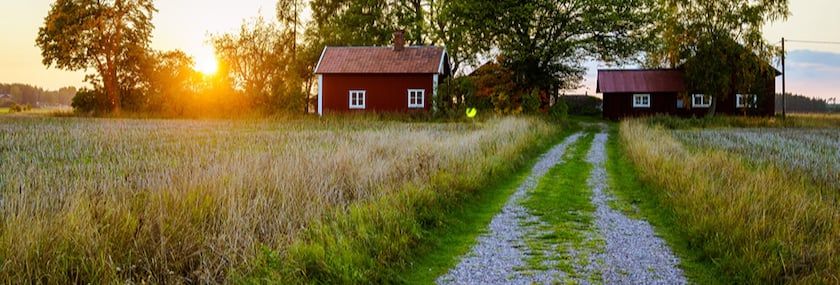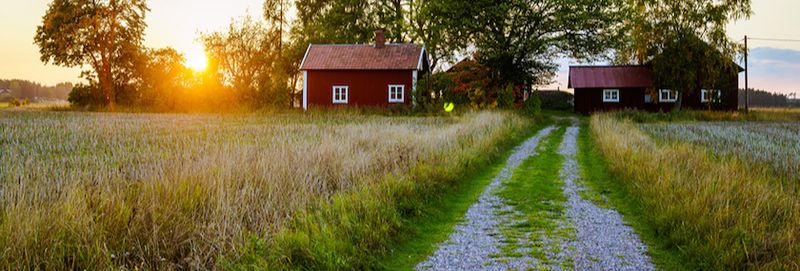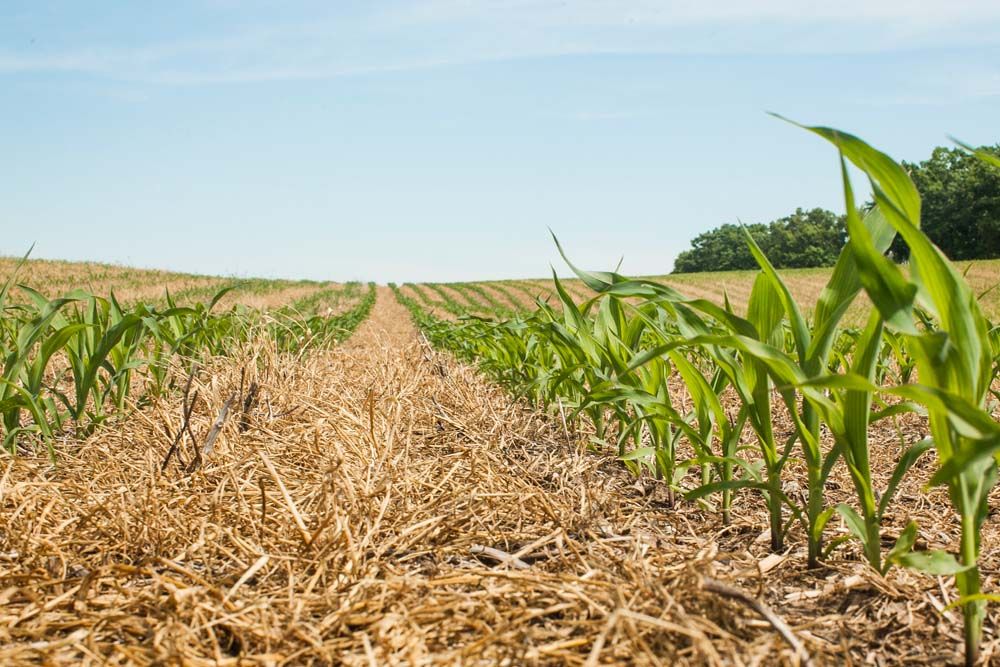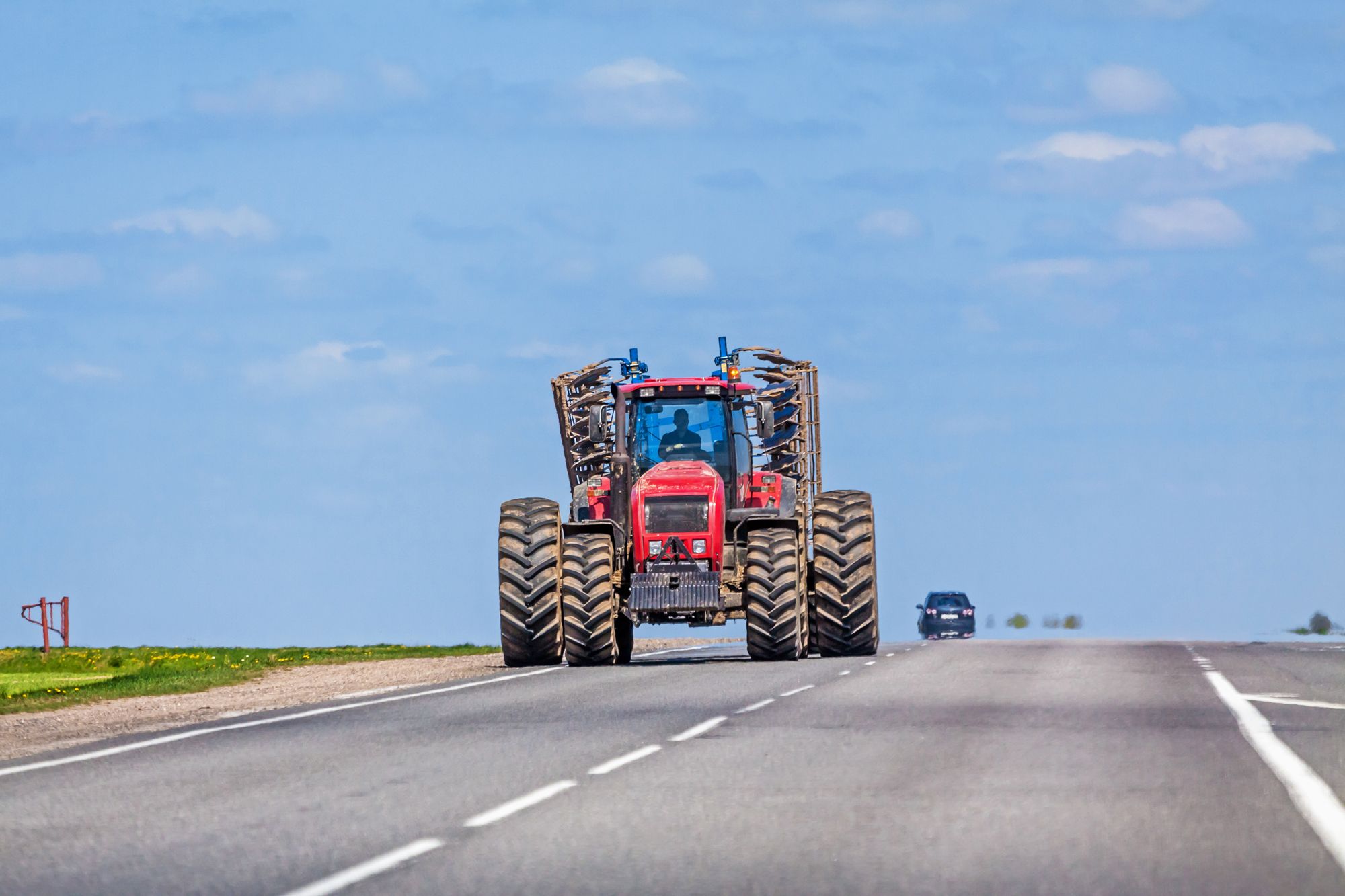What to Farm on a Small Farm


Five ideas to sustain your acreage
It can be hard to decide what commodities one might want to plant on a small-scale farm, and each decision comes with a lot of factors. Here are a few tips on deciding what to farm on your small farm:

1. Livestock
Livestock require quite a bit of land and this can be the biggest factor in whether you’ll be able to incorporate them into your farm. Cattle are some of the largest livestock and therefore require the most land.
If you’re looking at getting into small scale livestock farming, make sure there is an appropriate market in your area.
Since you won’t own enough animals for a semi-load of cattle, you’ll need to turn to livestock auctions or direct-to-consumer sales. Look carefully at factors like potential buyers, permits or licenses you may need to sell food for human use, trailering to an auction, and timing of sale. Sheep and goats do require less land but have similar selling dynamics as cattle, and not as large of a market so make sure to do extensive research before buying into this trade.
One unique idea is to breed show animals or animals designated for pets, like pygmy goats. This market can be extensive in many areas and may be more niche (higher profit) than food consumption animals.
2. Specialty fruits/vegetables
On a small farm you can devote more attention to a particular crop. Specialty fruits and vegetables, including unique varieties of your “ordinary” fruits and vegetables, are what many small-scale buyers are looking for. You could fill unique niches, so consider looking into specialty commodities.
Operations that can source their produce to nearby restaurants have greater success—chefs love to use unique local products in their dishes, and you have a regular, nearly guaranteed buyer! Just make sure you can provide the quantities your buyer requests.
3. Diversity
The key to small farm success is diversity. Rarely do small farms succeed with just one, two, or even just a handful of crops.
If you sell direct to consumer, they want a variety of vegetables to choose from each week. And similarly, a restaurant would rather not have to juggle 45 different vendors for each ingredient they need.
Plan your annual calendar of crops, including what crop rotations you will need to implement, and where they will go on the property. Pre-planning will help ensure you are effectively using the available land space as well as maintaining a full farm throughout the year. Plus, you’l be able to inform your customers what you will have available and when.
4. Staple crops
Don’t forget to include some of the “safe” staple crops in your small farm—sales of potatoes, greens, corn, tomatoes, and peppers. Buyers are comfortable with these options and generally include them in every week’s grocery list.
I encourage small farmers to branch out into “specialty” items, but always make sure you have some “safe” items that are reliable income, or not as risky to plant (financially, or in yield).
5. Out of season
If you are able, build a greenhouse to provide some local “out of season” crops. These can include tomatoes, peppers, squashes, or even some specialty items.
This works especially well if you have restaurants nearby that prefer to source local ingredients as you will be nearly the only local supplier of tomatoes in the dead of winter.
Small farm success
Because of the intense need to pre-plan what you will have planted on the farm, where it will go, and when it will go there, small farms can be challenging to run.

Small farms are enjoyable and a great way for people to live a rural lifestyle without having to own hundreds of acres, or even farm full time. Planning, faith, trust, and maybe some marketing skills can build a sustainable operation.
Homesteaders of America offer plenty of ideas
Tags:The Farm Babe

Acreage Life is part of the Catalyst Communications Network publication family.
















